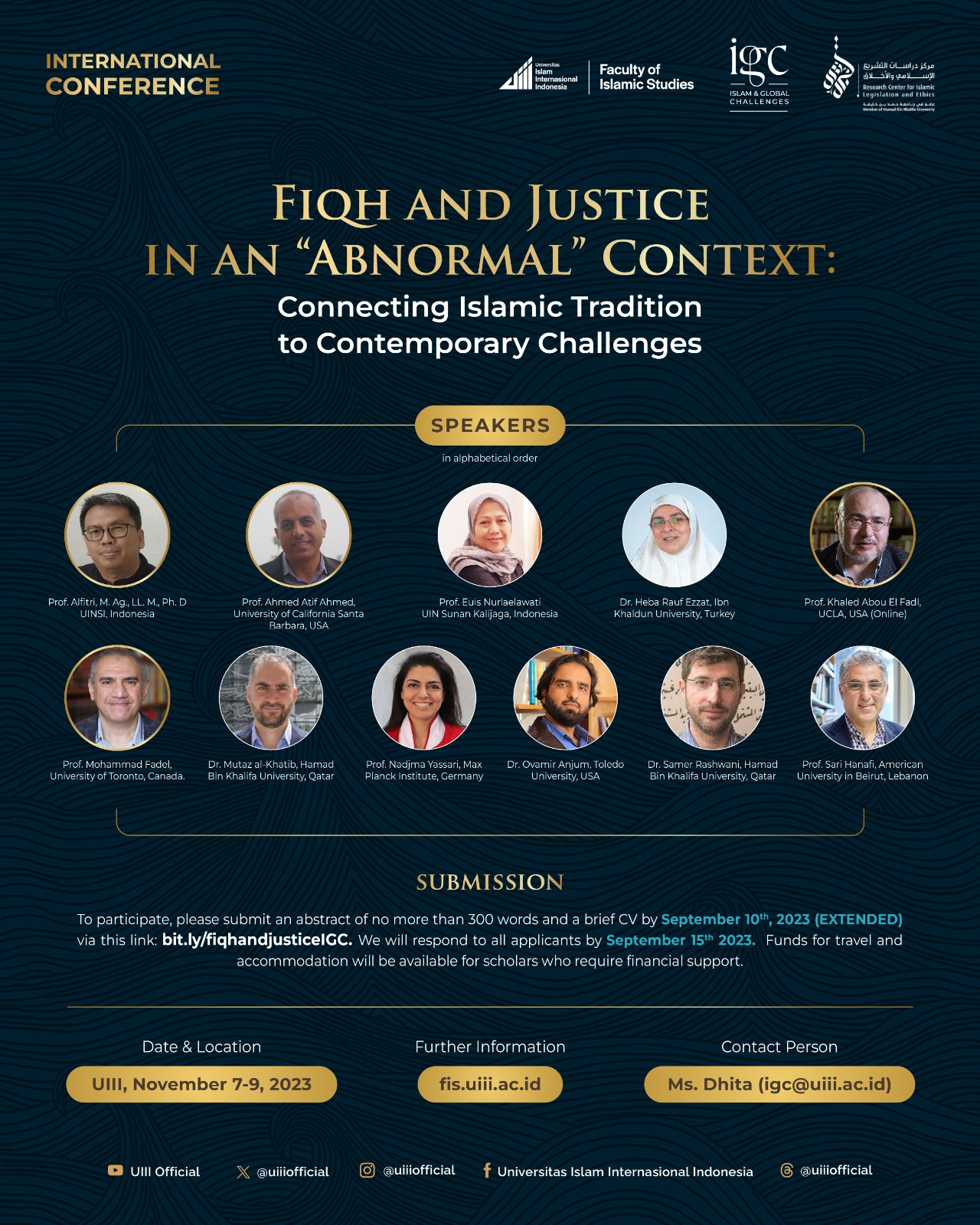
Call for Papers
International Conference
Since the 9/11 terrorist attacks, Islam has been largely seen as a problem that we need to study, analyze and resolve. Instead, the objective of this conference is to place Islam in conversation with various global challenges. Rather than perceiving Islam as a problem, the conference seeks to highlight the potentiality of Islam in inspiring creative ways to address a global issue like justice. Nancy Fraser famously argued that we live in an abnormal context that is dramatically different from any other moment in history. Sustaining justice in this context is challenging because we lack a shared understanding of what justice is, for whom, and by which people. Who is responsible for world poverty? Are people impoverished as a result of their misfortune? It is asserted that even though we sympathize with them, we are not responsible for their poverty as long as we have not done them any injustice. The claim of irresponsibility, more or less, is what some liberalists tend to emphasize. On the other hand, this viewpoint has been fiercely criticized for failing to recognize that poverty is social in character. Is it not true that capitalism, social institutions and political organizations unwittingly, and sometimes wittingly, create an unjust structure that is not caused by individuals, and for which no single person is liable? Then who is ultimately responsible for such an unjust structure and how can it be remedied? To what extent does power make some people predisposed to take advantage of others, and how can the non-discriminatory treatment of all people as having the same rights and obligations mask underlying structures of injustice? Moreover, the recent advances in the debates of transnational movements, globalization and world citizenship brings the question of ‘justice for whom?’ to the fore again. Another concern arises about the type of justice that we should promote and whether we need to transcend the question of material justice to think of other kinds like recognition or representation. Many of these questions date as far as Plato’s time. Nevertheless, whether we agree that we live in an abnormal world or not, it goes without saying that the modern context has added more sophistication to it and that we need to re-think these meta-disputes before we can have any meaningful discussion about justice.
Please, download the Full Call for Papers here:
To participate, please submit an abstract of no more than 300 words and a brief CV by Spetember, 10 th 2023 via this link: https://shorturl.at/bsxzG. We will respond to all applicants by September 10th, 2023. Limited funding for travel and accommodation will be available for scholars who require financial support. Kindly note that full papers must be submitted by January 15th, 2024, and selected papers will be considered for publication in a special issue of the Journal of Islamic Ethics (Scopus Q1) published by the Center for Islamic Legislation and Ethics, Doha.
If you have any inquiries, please do not hesitate to contact us at IGC@uiii.ac.id. We look forward to a stimulating and thought-provoking conference that brings together scholars from around the world to explore the rich and complex relationship between Islam and justice in today’s ‘abnormal’ world.
For more information about the center, please visit: https://fis.uiii.ac.id/center-of-islam-and-global-challenges-igc